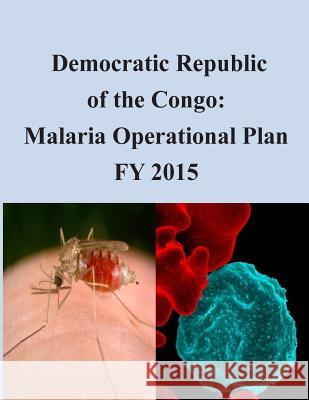Democratic Republic of the Congo: Malaria Operational Plan FY 2015 » książka
Democratic Republic of the Congo: Malaria Operational Plan FY 2015
ISBN-13: 9781507800980 / Angielski / Miękka / 2015 / 66 str.
The President's Malaria Initiative (PMI) is a core component of the United States Government (USG) Foreign Assistance Strategy. PMI was launched in June 2005 as a 5-year, $1.2 billion initiative to rapidly scale up malaria prevention and treatment interventions and reduce malaria-related mortality by 50% in 15 high-burden countries in sub-Saharan Africa. With the passage of the 2008 Lantos-Hyde Act, PMI was extended, and, as part of the GHI, the goal of PMI has been adjusted to reduce malaria-related mortality by 70% in the original 15 countries by the end of 2015. This will be achieved by continuing to scale up coverage of the most vulnerable groups -children under five years of age and pregnant women - with proven preventive and therapeutic interventions, including artemisinin-based combination therapies (ACTs), insecticide-treated nets (ITNs), intermittent preventive treatment of pregnant women (IPTp), and indoor residual spraying (IRS). Since PMI's inception in the Democratic Republic of Congo (DRC) in FY 2011, the United States Government (USG) funding for malaria control efforts in the DRC has significantly increased from $18 million in FY 2010 to $50 million in FY 2014. Malaria is a major health problem in the DRC, accounting for an estimated 40% of outpatient visits by children under five and 19% of the overall mortality in children under five. The implementation of large-scale malaria control activities in the DRC continues to face serious challenges. The country's health infrastructure is very weak and it is estimated that only 37% of the population has access to adequate health facilities.
Zawartość książki może nie spełniać oczekiwań – reklamacje nie obejmują treści, która mogła nie być redakcyjnie ani merytorycznie opracowana.











